South Korea heads to polls as Kim fires missiles for Day of the Sun
South Koreans conducted the world’s first significant COVID-19 election, while things were far different north of the border.
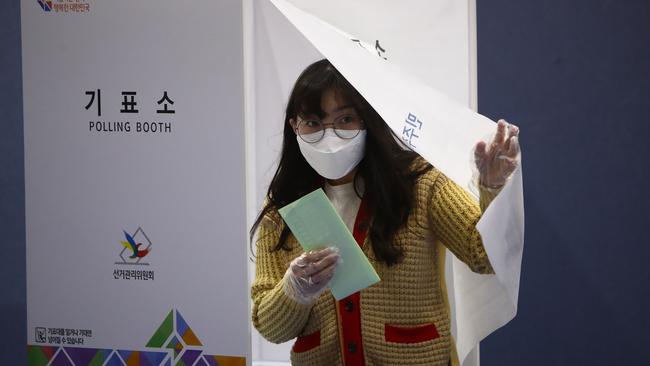
South Koreans are conducting the world’s first significant COVID-19 election on Wednesday, after its self-declared coronavirus free neighbour North Korea fired missiles to mark the birth of the hereditary dictatorship’s founder Kim Il-sung.
Across almost 14,000 polling stations, voters arrived wearing face masks, kept a one metre distance from each other and had their temperatures checked in an election expected to favour President Moon Jae-in’s ruling Democratic Party, which polls suggest has benefited from its handling of the coronavirus crisis.
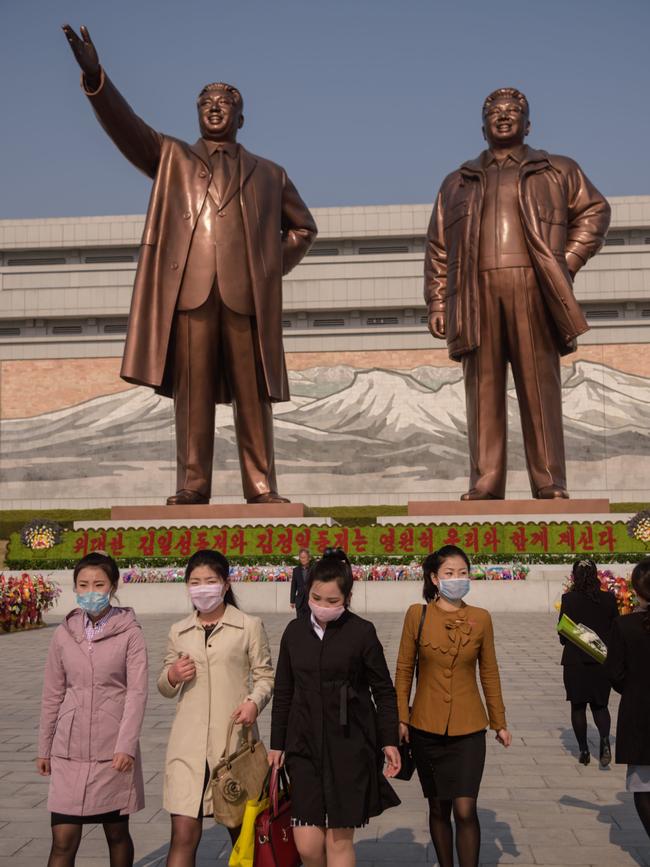
Over the border in North Korea, Supreme Leader Kim Jong-un – whose regime maintains it has not had a single coronavirus infection among its 25 million people – was forced to cancel some of the festivities for the Day of the Sun, the country’s most important holiday.
But the dynastic totalitarian state did not let COVID-19 spoil one of the holiday’s most famous traditions – firing a volley of missiles off its east coast, North Korea’s fifth missile launch of the year.
“The two countries’ approaches reveal a yawning gap in their leaders’ respective priorities,” said Jung H. Pak, a Korea Studies expert at the Brookings Institute.
After taming an early outbreak linked to a cult in Daegu, South Korea’s third biggest city, President Moon’s administration has been lauded around the world for its agile, innovative and open handling of the coronavirus. Dozens of world leaders, including US President Donald Trump, have asked Moon for testing kits, World Health Organisation director general Tedros Adhanom Ghebreyesus has phoned to request the South Korean leader give a keynote address to WHO members and U2 frontman Bono has written asking the President for medical equipment for Irish health workers.
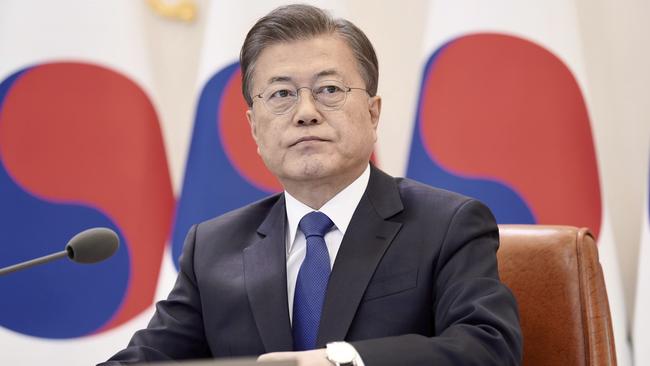
Praise for South Korea’s COVID-19 management is almost as widespread as suspicion about North Korea’s claim to have evaded the coronavirus which has now been confirmed in over 110,000 cases in China, South Korea and Russia, the three countries with which it shares a border.
Robert Abrams, the commander of US forces in Korea, has said he was “fairly certain” the virus has affected North Koreans, noting its military had “fundamentally been on lockdown for about 30 days”.
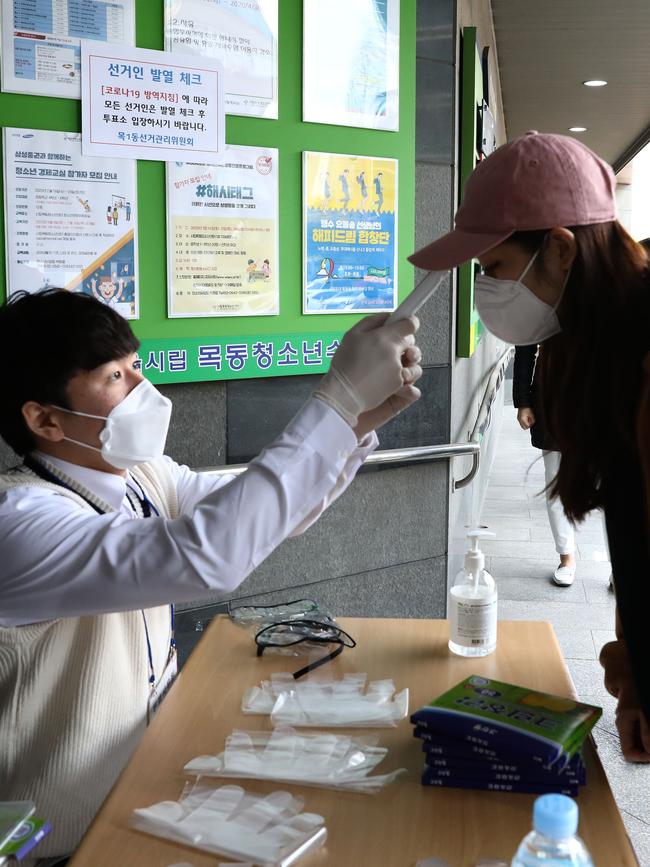
Japan’s Yomiuri Shimbun – the highest circulation newspaper in the world – has reported that more than 100 North Korean soldiers appear to have died from COVID-19.
An escapee from the repressive regime now in South Korea told Reuters “the situation is very serious”.
“Otherwise they wouldn’t be so loud on the news about this,” the escapee said.
North Korea’s propaganda outlets have said its COVID-19 miracle was possible due to “work to completely lock down all routes through which the infectious disease can flow in — the border, sea, and air”.
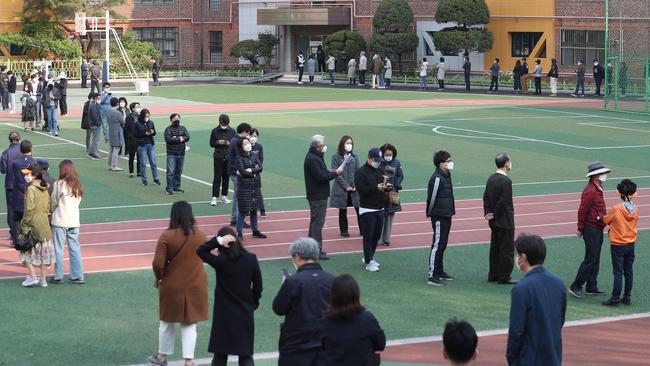
The country closed its land border with China, halted its fledgling tourism industry, shut schools and has told its population to practice good hygiene, including with messages made over loudspeakers attached to vans.
A recent video report by China’s state controlled Xinhua news agency noted, but did not challenge, the North Korean regime’s claim that “not one single person has been infected” by the coronavirus.
The Xinhua video report showed North Koreans – many dressed in grey and khaki – keeping a distance from each other at Pyongyang Railway Station, wearing face masks in a supermarket and constructing a new hospital in the North Korean capital, where Kim’s grandfather was born on April 15 in 1912.
Some festivities to mark the birth of North Korea’s founder – whose titles include the “Sun of the Nation” and “Eternal President of North Korea” – were cancelled because of the coronavirus, according to the Seoul-based news agency Daily NK.
North Koreans were instructed to watch the state media broadcast of a Day of the Sun flag-raising ceremony and accompanying rally at home on television.
Meanwhile, over the border many of South Korean’s 50 million citizens were voting in their national election which will determine the parliament President Moon will work with during the final two years of his five year term.
Stations opened on Wednesday morning, with exit polls to be released at 6pm Korean time (7pm AEST), followed by the vote count.



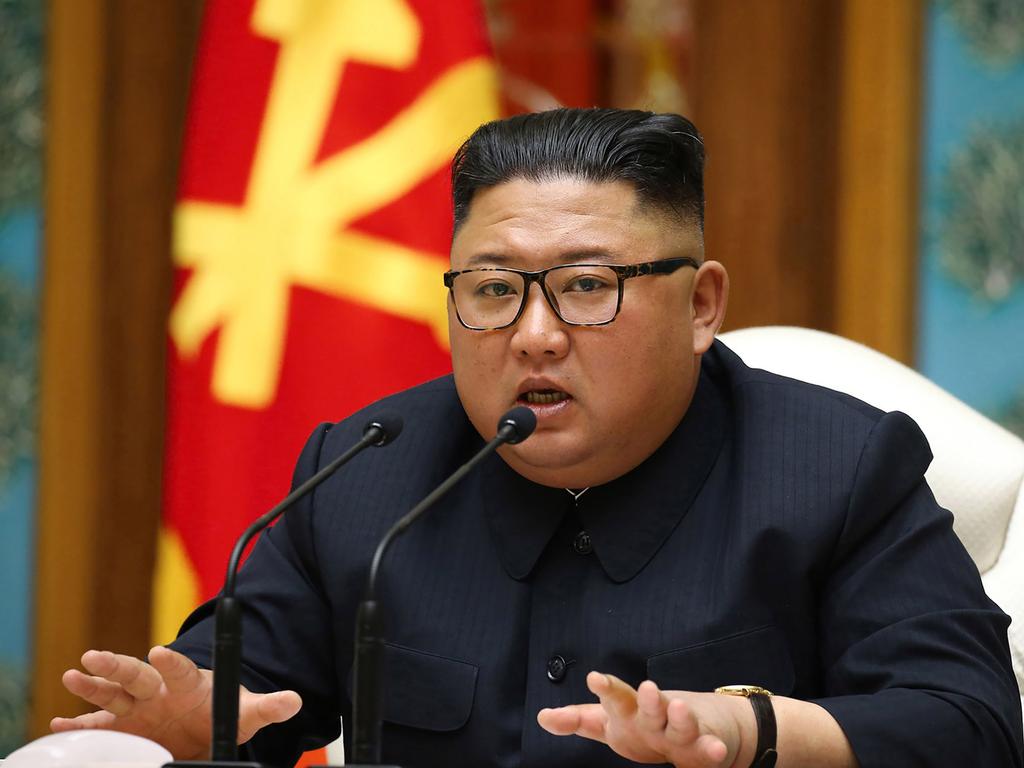
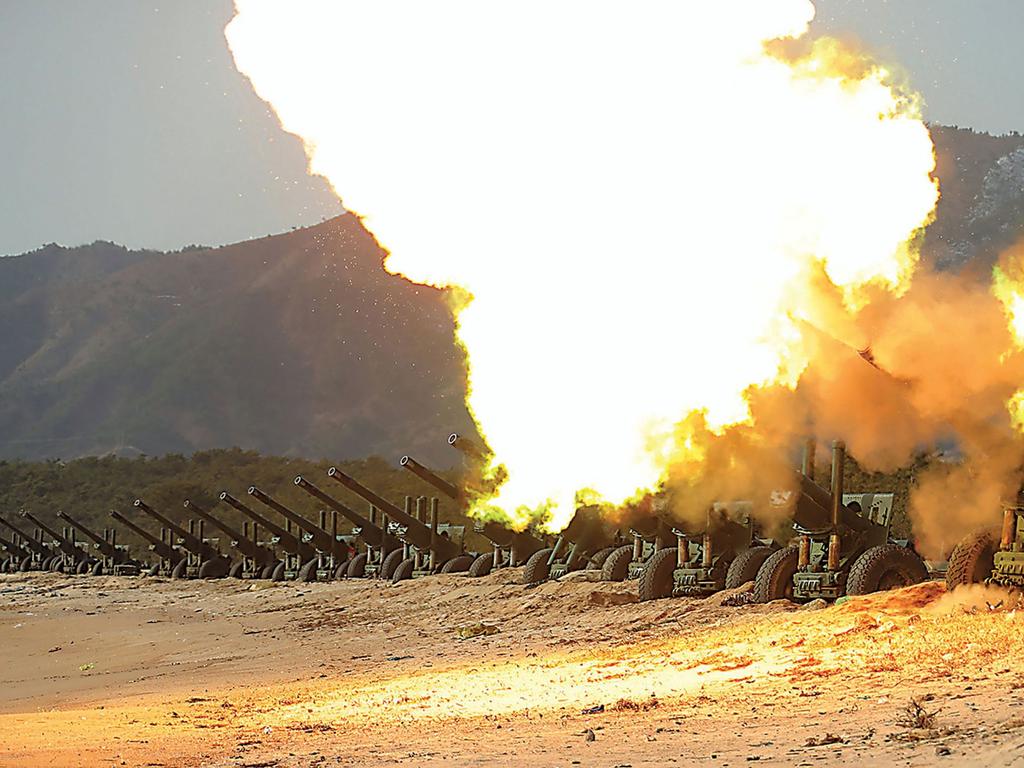
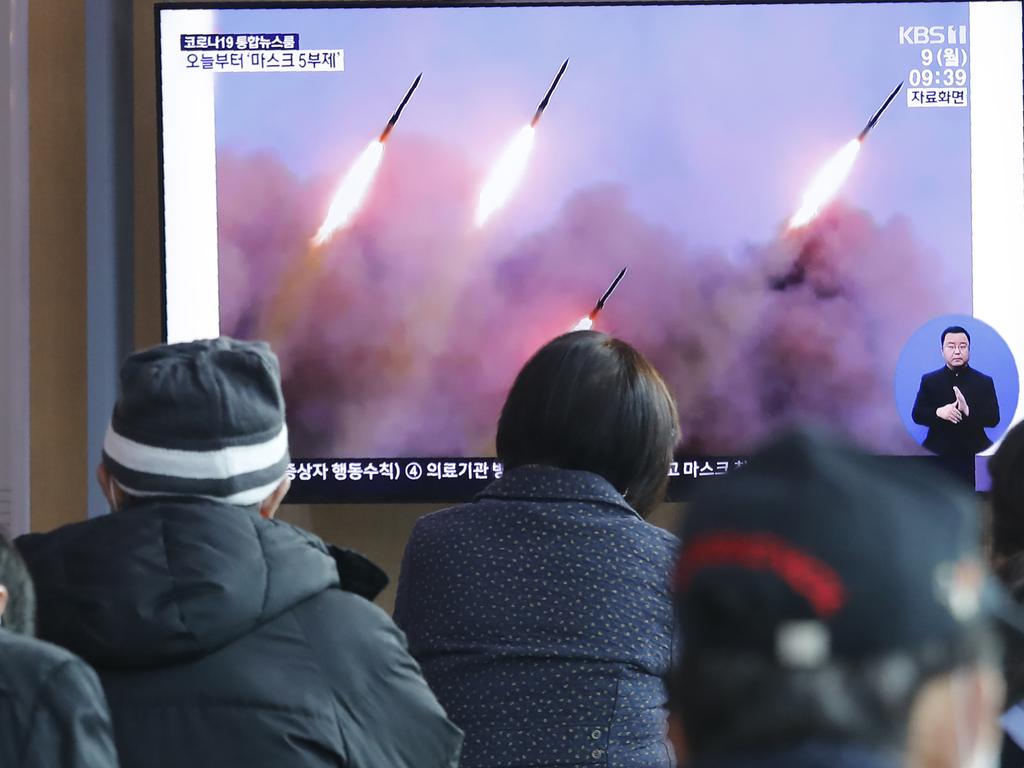
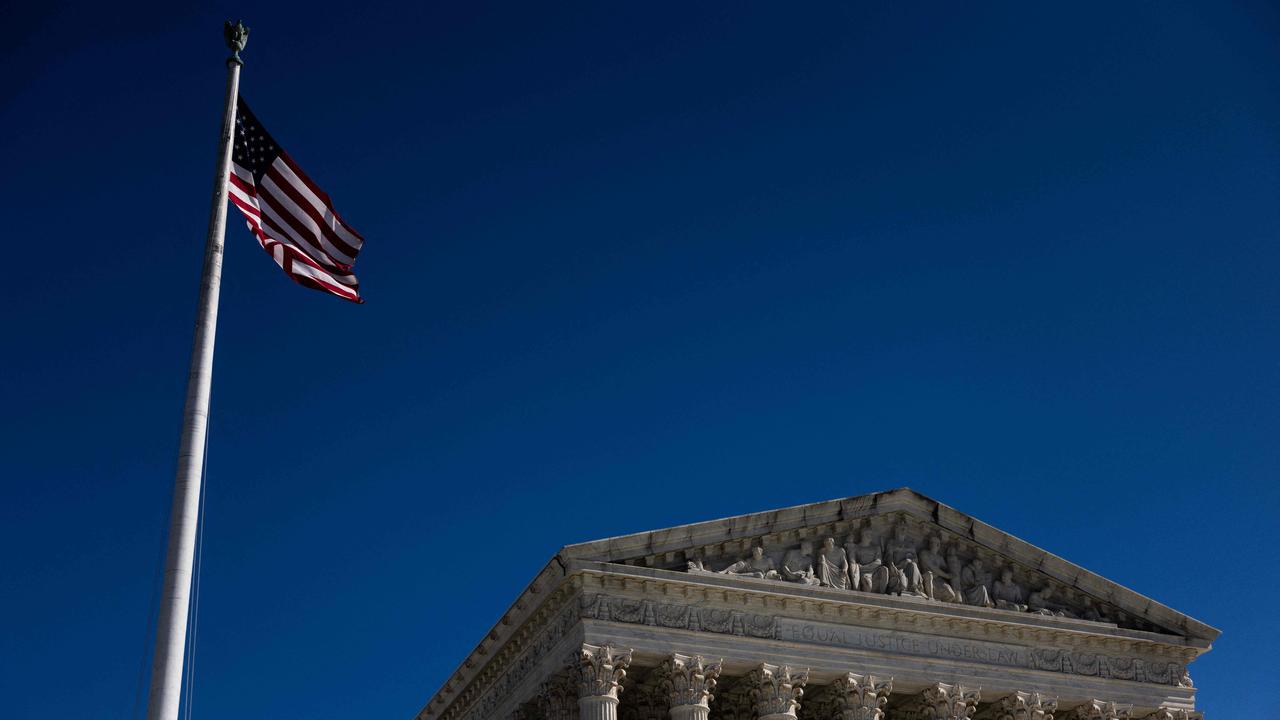
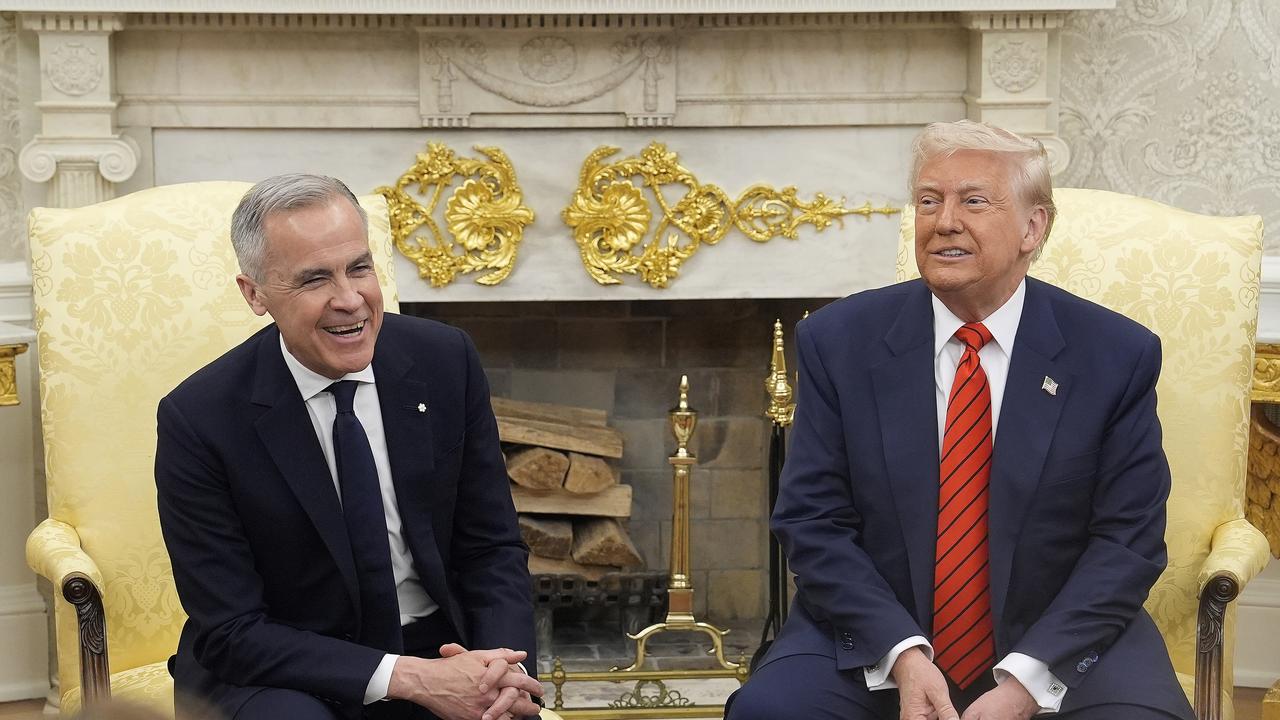
To join the conversation, please log in. Don't have an account? Register
Join the conversation, you are commenting as Logout